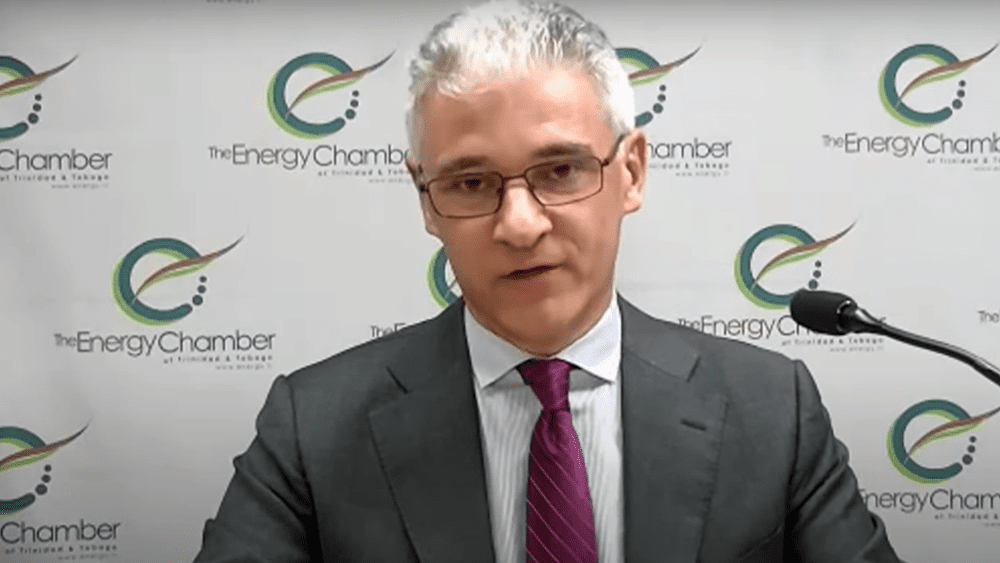The climate crisis has seen wealthy countries that have built and transformed their economies with oil and gas, calling on countries in Africa, South America and the Caribbean, to hold off on developing their hydrocarbon resources.
Calls have mounted for producers like Guyana, Trinidad, and Suriname to abandon the development of their oil and gas resources for fear that it could exacerbate climate change. But President and Chief Executive Officer (CEO) of the Energy Chamber in Trinidad, Dr. Dax Driver, is of the firm view that those nations have no just grounds to make such a demand.
Dr. Driver weighed in on the discourse during the “Transforming Guyana” webinar by the Guyana Business Journal & Magazine on Wednesday. The panel also included the Executive Director of Guyana’s Environmental Protection Agency (EPA). Kemraj Parsram, and Dr. Lorraine Sobers, lecturer at the University of the West Indies, St. Augustine.
Using London as an example, the Energy Chamber CEO explained that the city was built largely on coal mining for electricity which continued up until the early 2000s. Different fuels emit different amounts of carbon dioxide (CO2) in relation to the energy they produce when burned, and coal is the biggest emitter.
Aside from London, the modern world, Driver said, was also built on fossil fuels.
Rich countries must exit oil production first, new climate report states | OilNOW
“So let me be frank – nobody living in affluent London has the moral authority to tell anyone living in Georgetown, or Paramaribo or Port-of-Spain that they need to leave their oil and gas in the ground to stop climate change,” he stressed.
Though the Caribbean has contributed little to the climate crisis, it stands to lose the most from it and this, according to Dr. Driver, should be at the forefront of policy creation. He was keen to note that ending production will have no impact on climate change – it is the consumption. So, activities like coal mining, he said, “should be stopped.”
Dr. Driver added that switching to natural gas power is the environmentally friendly option before the full transition to renewable energy.
“Coal to gas is the most effective short-term change that needs to happen in the world to reduce emissions,” he continued.
Russia’s invasion of Ukraine has forced some nations to switch back to coal-fired power. But it has also increased the need for natural gas to fill the void left by Russia as western countries wean themselves off Russian gas. And this is something that the Caribbean should pay attention to, Dr. Driver pointed out further.
Guyana is already making headway with its massive gas-to-energy project, which will see a guaranteed minimum of 50 million cubic feet per day (mmcfd) of natural gas being transported onshore from ExxonMobil’s Liza 1 and 2 fields in the Stabroek Block.



